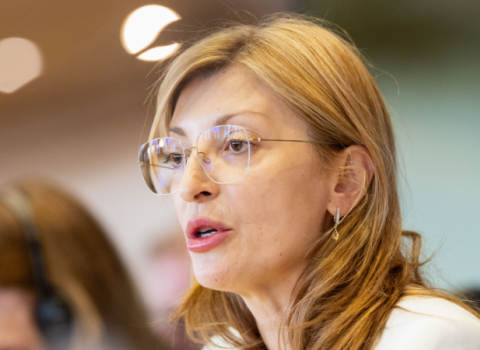
Science|Business CEO and Editor Richard L. Hudson
The problem with government R&D programmes, it’s often moaned, is that they’re designed by politicians without practical experience of the real world of labs, industry and markets. True or not, the European Commission is now proposing to create a new advisory board focused on getting it more of that real-world advice.The panel, to be called the European Research Area Board, will be comprised of 22 individuals with broad, practical experience of various aspects of research, innovation and technology management across the EU. An expert group formed to recommend the prospective board members is seeking nominations by 7 December. It will report to EU Science and Research Commissioner Janez Potočnik.
Know someone who would be perfect for this panel? Would you be?
The Identification Committee has invited the main European public and private sector umbrella associations concerned with research and its broader impact to submit nominations by 7 December – including a CV and a brief statement of the rationale. It has also asked Science|Business to help generate nominations. So send your nominations to us at Science|Business, and we will get them to the appropriate organisations for review.
Email a CV and brief statement about the candidate to [email protected]. Please make the subject line read: EU Advisory Panel.
The panel’s formation is part of an evolving process through which the Commission has been reaching out for broader, outside advice on its R&D and innovation policies. In April, the Commission launched a formal public consultation process, which gathered more than 800 written comments, on how it should steer policy towards the creation of what it calls a European Research Area – an EU-wide market for researchers, inventions and skills. It has organised several ad hoc meetings with outside experts. The process shifts into higher gear in early 2008 when Potočnik plans to unveil a new round of policy proposals.
The new advisory panel is aimed not at formulating policy but at advising the commissioner on the strategic practicalities of implementing the policies he’s considering, according to Andrew Dearing, secretary-general of the European Industrial Research Management Association, and one of three experts acting as an “Identification Committee” on behalf of Potočnik. The other two experts are Claudie Haigneré, former minister of research and of European affairs for France, and Professor Vaira Vike-Freiberga, former president of Latvia.
The 5th Freedom: Research in Europe – the ongoing discussion
Following the pan-European "town meeting" with the EU Research Commission in Brussels on 12 June organised by Science|Business around the theme of the Research in Europe, Science|Business is now running an ongoing online discussion. Click here to access the event highlights, view the event video or take part in the online debate.
Members of the group should also “demonstrate qualities such as experience in the design and implementation of research policy; excellence in research and research management; advisory experience on a European of international level; disciplinary balance; and experience of the university–industry interface”.
The panel’s duties will include preparing an annual report on the state of the European Research Area and making policy suggestions in light of its findings, according to a Commission statement. It may also discuss implementation of ERA policies with national bodies, and will organise workshops and a bi-annual assembly to assess progress in realising ERA. The term of board members is four years. Dearing estimated it would require up to 10 days a year of voluntary time.





 A unique international forum for public research organisations and companies to connect their external engagement with strategic interests around their R&D system.
A unique international forum for public research organisations and companies to connect their external engagement with strategic interests around their R&D system.